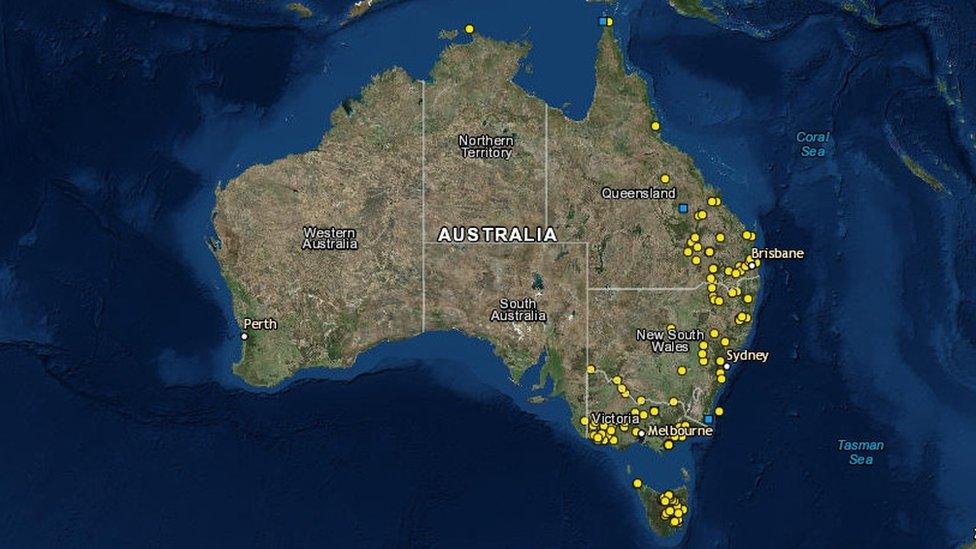How a school play about Aboriginal history set off a row
- Published
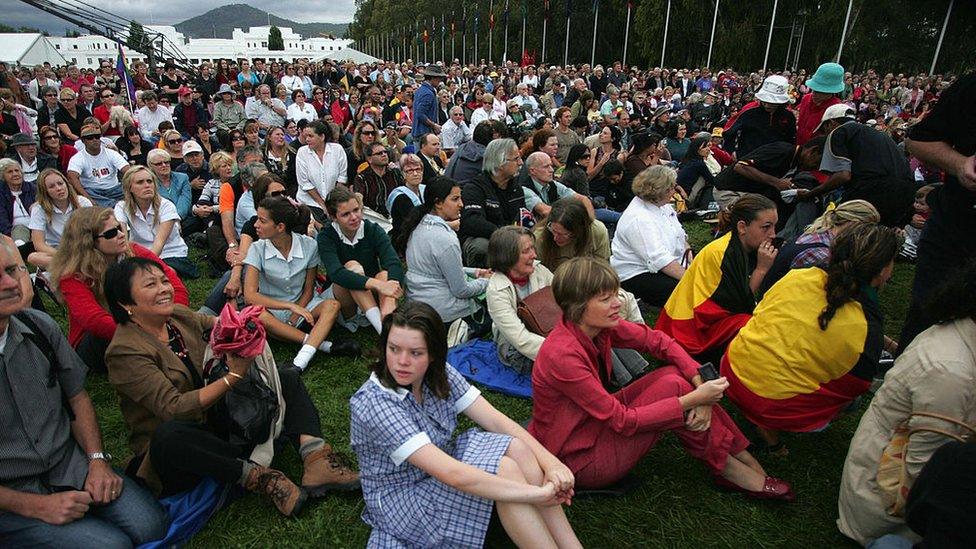
Australians watch the government's long-awaited apology to the Stolen Generations in 2008
It's one of the most sensitive topics of modern Australia: the country's past treatment of its indigenous peoples.
And its capacity to divide non-indigenous Australians has again been thrust into the spotlight, this time because of a primary school play. It has also raised debate about what is appropriate for children to be taught at school.
Students at the government-run Forestville Public School in Sydney's north last week performed a history presentation titled Australia - You're Standing In It (named after a 1980s TV comedy show).
While the play, presented by junior students, covered various Australian history topics, a segment performed for parents by Year 5 and 6 students about one of the nation's darkest chapters - the Stolen Generations - has sparked controversy.
Tens of thousands of Aboriginal and Torres Strait Islander children were forcibly taken from their parents by government authorities between 1883 and 1969 and placed into boys' and girls' homes, foster families or Christian missions. On turning 18 they were cast out, often scarred for life, support groups say.
The policy's most widely cited motivations include that it was a protective move based on a belief the indigenous population would die out, that children were being neglected, or that it was a way of introducing religion to Aboriginal people.
Some indigenous groups, however, say the main motivation was to put a swift end to Aboriginal culture.
In 2008, newly elected Prime Minister Kevin Rudd issued a famous, long-awaited apology in parliament, external to the Stolen Generations, saying he hoped Australia could turn a new page by "righting the wrongs of the past and so moving forward with confidence to the future".
But nine years on, the issue is still a thorny one.
'Disgraceful' content
One parent who saw the play at Forestville was Robbie Slater. A former Australia and English Premier League footballer whose five-year-old son attends the school, Mr Slater came out in the media to say he was "disgusted" by the segment.
"It was bloody disgraceful," Mr Slater, now a TV football commentator, told local newspaper The Manly Daily, external, adding he had walked out "at certain stages" during the play.
"I don't think using five, six or seven-year-old kids is appropriate to push your own political agenda," he added.
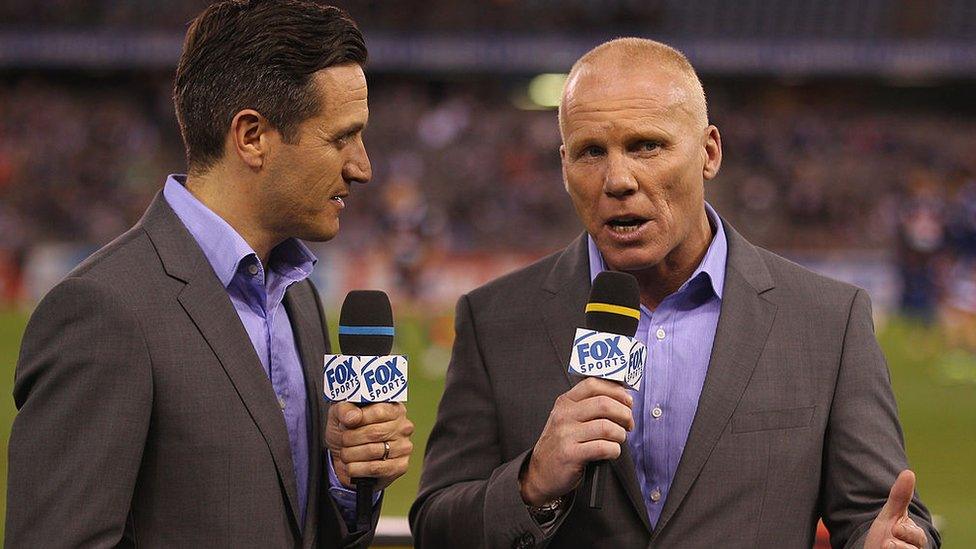
Footballer-turned-commentator Robbie Slater, right, criticised the play
However, the children presenting the Stolen Generations segment were from the nine-12 age bracket. Also, students from kindergarten to Year 4 did not watch that part of the play.
Initial reports also said the play featured children dressed as nuns who were mentally and physically abusing students playing Stolen Generations children.
The issue drew more visceral reaction through Sydney right-wing radio talkback host Ray Hadley, who demanded an inquiry from the New South Wales state government, and called the teachers organising the play "imbeciles".
In his column in Sydney's Daily Telegraph, external, Mr Hadley railed against the "socialist engineers masquerading as teachers who organised the left-leaning display", saying children "go to school for an education, not to be indoctrinated by rabid left-wingers".
Mr Slater and Mr Hadley also highlighted the fact children in the play held up a placard reading "Sorry" as an example of a political agenda being forced onto them.
The play came in a tense week for race relations in Australia, with a local council in Melbourne drawing flak from Prime Minister Malcolm Turnbull, among many others, for announcing it would abandon its traditional Australia Day celebrations on 26 January.
This was done out of respect for indigenous people, many of whom refer to the anniversary of the landing of the First Fleet in 1788 not as "Australia Day" but "Invasion Day".
Parents defend school
After the initial media flurry about the Forestville play, however, many parents from the school came out in support of the performance, saying schools should not shy away from the more troubling aspects of Australian history.
Nina Mapson Bone, who has a son in Year 3 at the school, said "discomfort should not be a reason not to teach our children about the facts of important events in Australia's history".
"The overwhelming majority of parents who saw the play did not think it was inappropriate," she told the BBC. "I haven't come across any other parents who agreed with that one angry parent.
"The play was factual, not political."
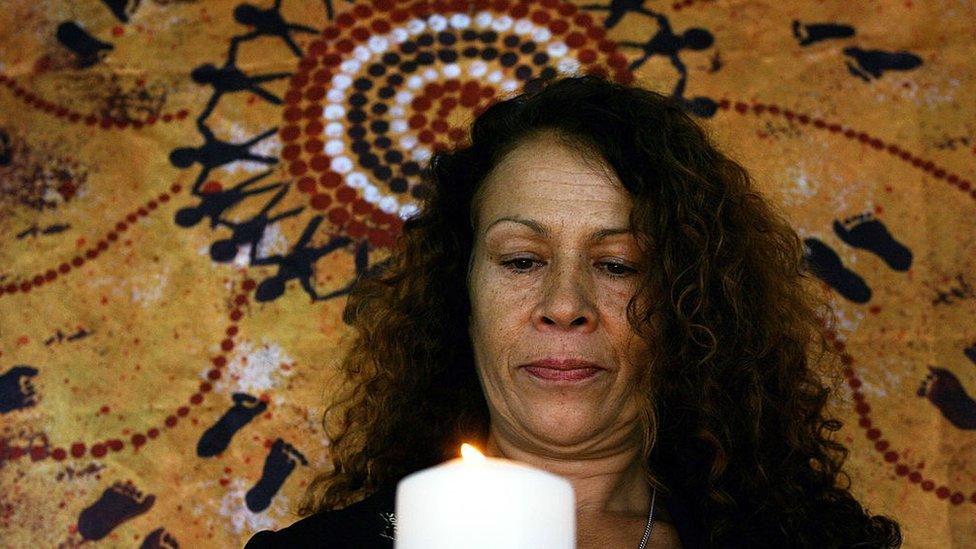
Jeanie Bartley, who was removed from her parents as a child, at a National Sorry Day event in 2009
Ms Mapson Bone said what her son had learned from the play was the "compassion and understanding" that are essential in helping fix some of the issues relating to Aboriginal reconciliation in Australia.
She also said two of the most pointed allegations about the play were ill-based.
"The kids holding up the 'Sorry' sign were re-enacting scenes from when Kevin Rudd made his apology. It wasn't an agenda of the school," she said.
"And there were no nuns abusing children. They were teaching them. Later, the play did show kids being taken away from their parents, but there was no violence about it. It was mimed, and in a calm and peaceful way."
Ms Mapson Bone said parents had shown their backing for the school by taking morning tea to the teachers on Thursday, and signing a "huge" card of support. A school community Facebook page has also received more than 200 expressions of support.
"So grateful that the teachers… are teaching our children the true facts of our rich history," one student's grandmother wrote.
"Our Aboriginal people are grieving so much. Please acknowledge this fact. The children… will understand thanks to Forestville School's honesty!"
Parent Sinead Kennedy-Guy wrote: "It was just a play done with sensitivity and finesse. And it was based on the truth. For those that are sensitive to the truth, I say suck it up and move on."
In response to calls for an inquiry into the play, a spokesman for New South Wales Education Minister Rob Stokes told the BBC the department was "looking into the matter", and would make no further comment.
- Published25 January 2017
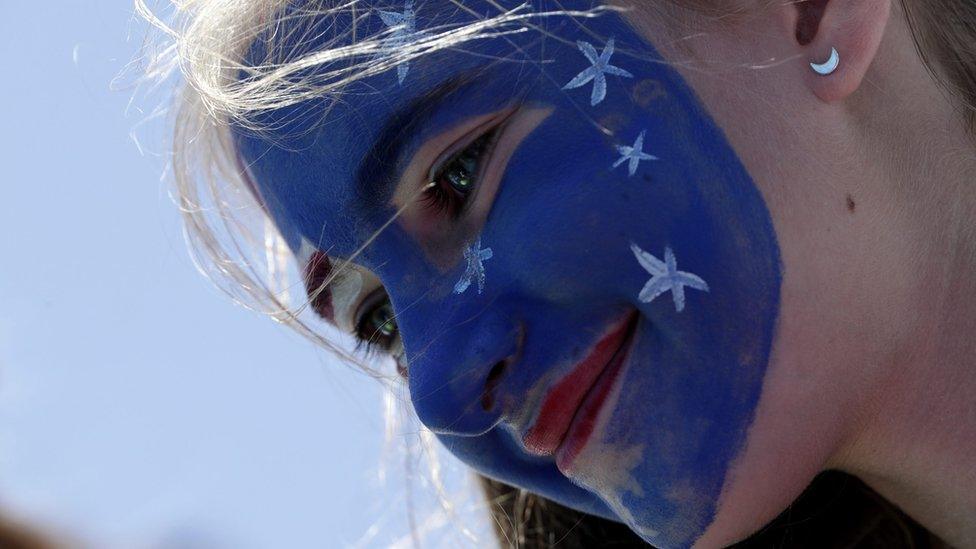
- Published16 August 2017
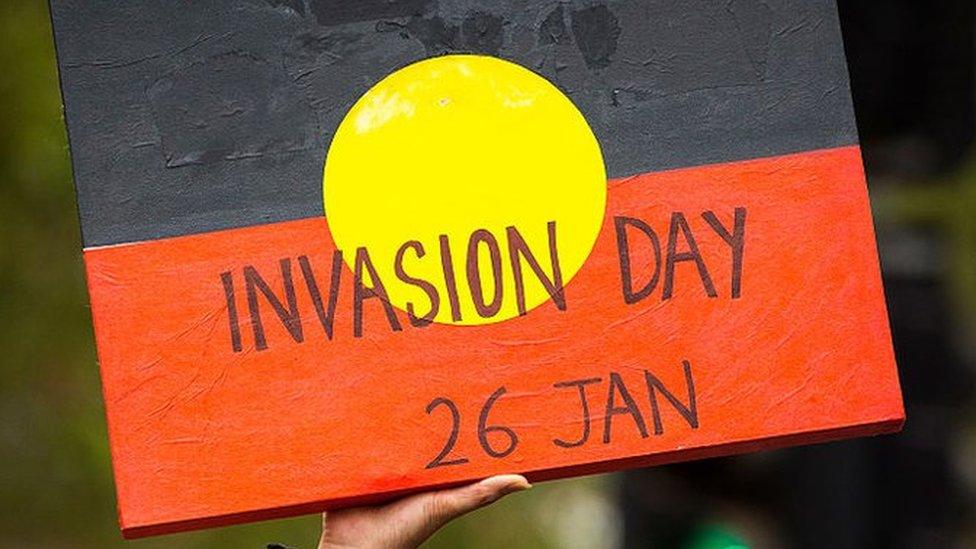
- Published20 July 2017
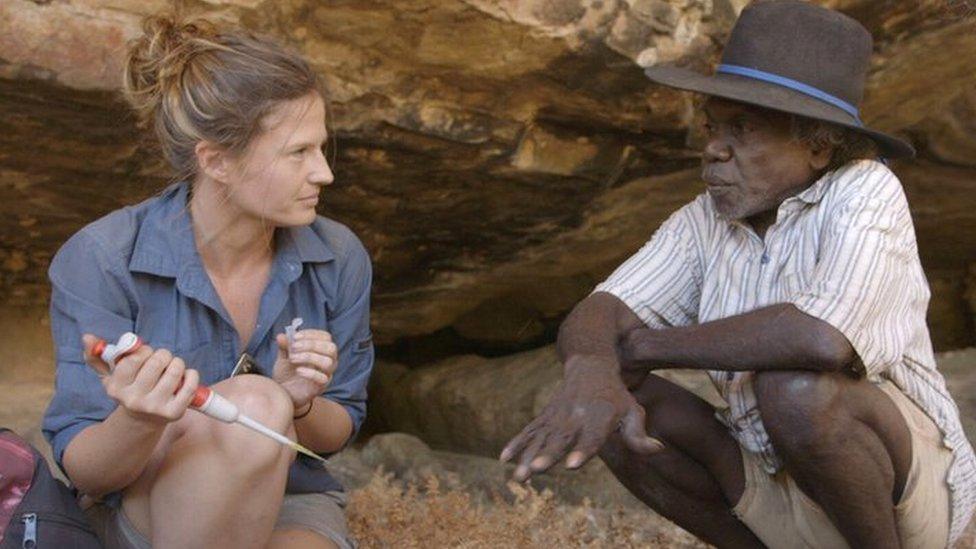
- Published5 July 2017
